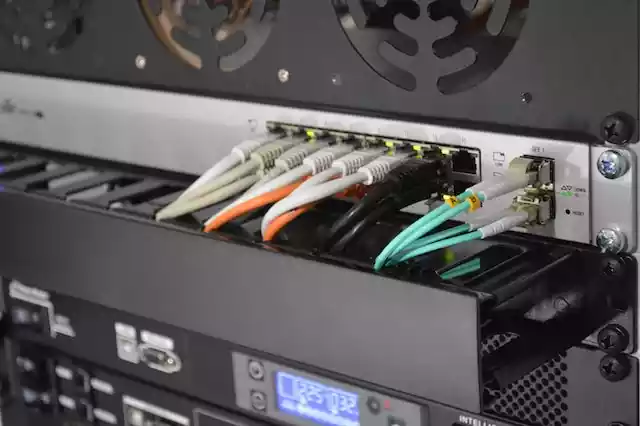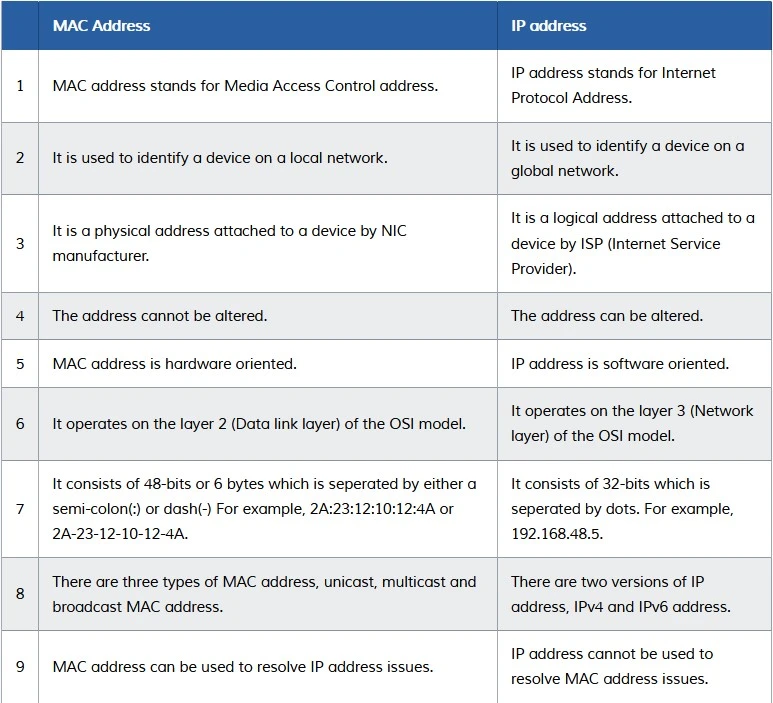Do Hubs Use IP Addresses?
Do hubs use IP addresses? This is a common question when it comes to understanding the functionality of network devices.
In this article, we will look at the role of hubs in network communication and clarify whether hubs utilize IP addresses.
Table of Contents
What are Hubs?
Hubs are devices that operate at the physical layer (Layer 1) of the OSI model. Their primary function is to transmit data bits over a physical medium, such as a cable.
Read on: The Seven Layers of the OSI Model Explained
On the other hand, IP addresses are used at Layer 3, the network layer, to route data between different networks.
Understanding these fundamental concepts is crucial to comprehend the role of hubs in network communication.
How Hubs Forward Data
Hubs utilize MAC (Media Access Control) addresses to forward data. MAC addresses are unique identifiers assigned to each network interface controller (NIC).
When a hub receives a data packet, it broadcasts the packet to all of its ports.
The NICs on the other devices connected to the network then examine the destination MAC address in the packet and forward the packet only to the device with the matching MAC address.
Read on: What is a MAC Address? Explained With Examples
The Role of IP Addresses
Unlike switches and routers, hubs do not have an understanding of IP addresses. IP addresses are used for logical addressing and routing at the network layer.
Hubs operate at a lower level, focusing solely on the physical transmission of data. Therefore, hubs do not use IP addresses to route or manage network traffic.
Efficiency Comparison: Hubs vs. Switches
Switches, unlike hubs, can learn the MAC addresses of the devices connected to each of their ports.
This feature allows switches to forward data directly to the destination device without broadcasting the packet to all ports, resulting in improved network performance.
In contrast, hubs broadcast all received packets to all connected devices, which can lead to network congestion and reduced efficiency.
Modern Network Practices
In modern networks, hubs are not commonly used due to their limitations in terms of efficiency and performance.
Switches have replaced hubs as they offer better network management capabilities. However, there are still some scenarios where hubs find their utility.
Small home networks or networks with a limited number of devices may still employ hubs for their simplicity and cost-effectiveness.
Wrap Up
As a wrap up, hubs do not use IP addresses. They operate at the physical layer of the OSI model and utilize MAC addresses for data forwarding.
Hubs are not as efficient as switches, but they may still find application in specific network setups.
It’s important to understand the differences between hubs and switches in order to make better decisions regarding network infrastructure.
FAQs about Hubs and IP Addresses
- Can hubs route data between different networks? No, hubs cannot route data between different networks.
They lack the understanding of IP addresses, which is essential for routing at the network layer. - Are hubs as efficient as switches? No, hubs are not as efficient as switches. Switches can learn MAC addresses and forward data directly to the destination device, while hubs broadcast data to all connected devices.
- Can hubs be used in modern networks? Hubs are not commonly used in modern networks.
Switches provide better performance and network management capabilities. - What are the advantages of using switches over hubs? Switches offer improved network performance, reduced network congestion, and the ability to forward data directly to the destination device.
- Are there any situations where hubs are still used? Hubs may still be used in small home networks or networks with a limited number of devices due to their simplicity and cost-effectiveness.
- Do hubs require IP addresses to function? No, hubs do not require IP addresses to function. They operate at the physical layer and use MAC addresses for data forwarding.





